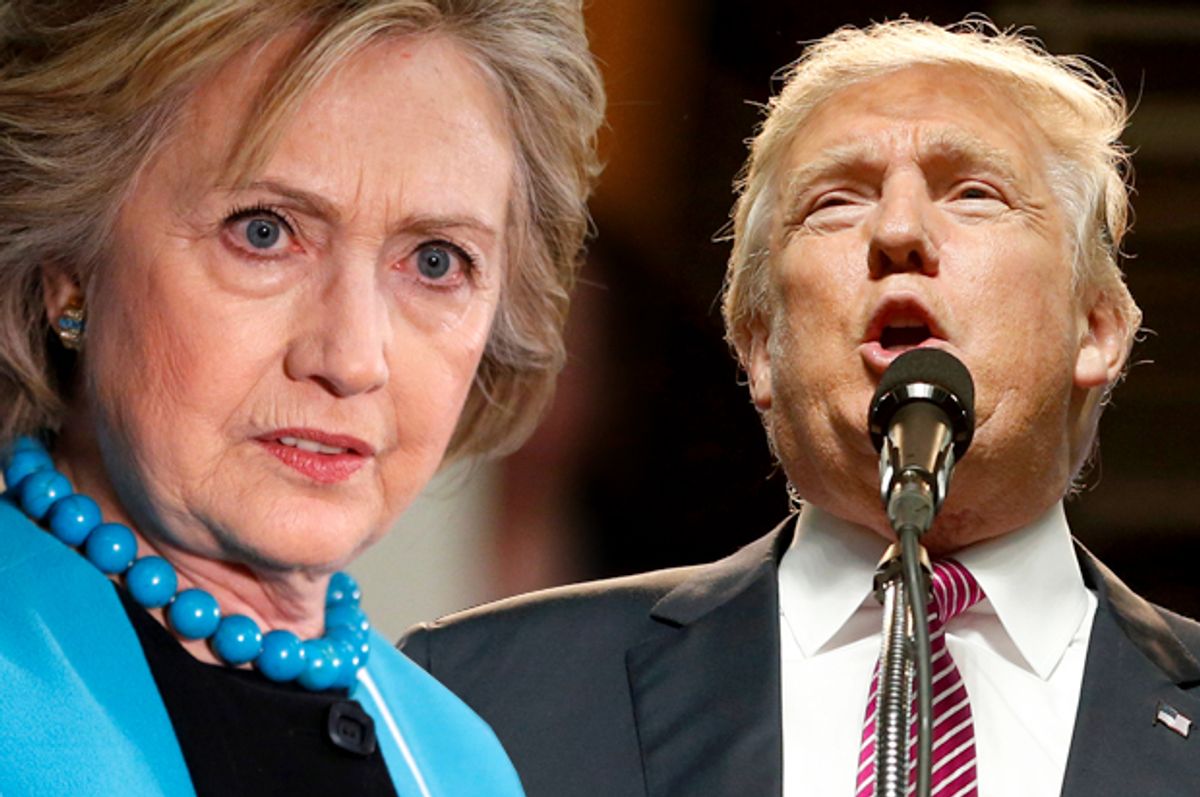Is North Carolina the great battleground state of 2016?
At first glance, one might assume it is a nearly automatic pickup for the Republican presidential candidate, even if that candidate is Donald Trump. It’s a southern state with a conservative legislature that has spent the last few years barreling towards the right as fast as it could pass spending and tax cuts. The election of Pat McCrory as governor in 2012 marked the first time since 1870 that Republicans had controlled both the governor’s mansion and both houses of the state legislature. It has gone for the Republican candidate for president in eight of the last nine elections. The sole exception was Barack Obama in 2008, and he only won the state by three-tenths of a point, which is about as close as it can get without attracting a Brooks Brothers riot.
The only way the GOP could have screwed it up for this year’s presidential nominee is likely to do exactly what it has done: Overreach. After a couple of years of quietly gutting state services and turning the state university system over to a George W. Bush flunky in a political appointment so transparent it would have embarrassed a banana republic strongman, the legislature and McCrory finally went too far with the passage and signing of HB2.
The so-called “bathroom law” overrode local anti-discrimination ordinances that allowed, among other things, transgendered people to use the bathroom of their choice. Its passage led to all sorts of economic damage as musicians cancelled concerts in the state and corporations reversed plans to open offices there. To say nothing of making the state the butt of a thousand jokes from late-night comedians.
Now McCrory is facing a tough re-election and one of the state’s representatives in the Senate, Richard Burr, might have a fight on his hands in his own run for another term. Even Tea Party darling Rep. Renee Ellmers lost her primary and will not be on the ballot in the fall. (Granted, that was partly because her district was redrawn, forcing her into a primary against another sitting Republican congressional representative who is only slightly less wingnutty.)
Against this backdrop, President Obama will make his first appearance on the campaign trail on Tuesday, when he appears at a Hillary Clinton rally in Charlotte, site of the Democrats’ convention in 2012. Obama has been infamously itching to get out on the trail to help his former Secretary of State take on Trump. Their first jointly scheduled stop was supposed to take place in Wisconsin, another swing state, earlier in June, but it was cancelled after the nightclub massacre in Orlando.
If you want to assess the health and confidence of a presidential campaign, you can do worse than to look at where a candidate is trying to “stretch the map,” – that is, to fight for those swing states that could go either way. Polling averages have Trump and Clinton running about even, and 538’s forecast gives the Democrat a 60 percent chance of winning the state.
Of course, Clinton could just be pouring resources into the state to force Trump to play defense, to allocate his own time and money to fighting for the 15 electoral votes at stake. But in terms of strategy, it’s a much better one than the orange-tinted mogul’s alleged plans to contest deeply blue states like New York, Connecticut, California and Massachusetts, all of which Trump claims he is determined to win.
So what are Clinton’s chances of pulling it off? A Democratic operative in the state told me he thought 538’s assessment was “overly charitable.” Still, the problems for Trump likely come down to the same problems that are going to plague him in other states: He has so little infrastructure that he’s barely running what could even be called a campaign, and he’s still about as likable as a bad case of shingles.
“It mostly comes down to ground game and air war,” the operative says, referring to the robust operation Clinton has already set up in North Carolina. “We also have the most competitive [governor’s] race in the country, so I think some of that will actually trickle up to the presidential.”
So an unpopular governor up for re-election plus a Republican presidential candidate with next to no campaign apparatus to speak of. Those are two large strikes before the campaign really gets underway.
Essentially, Trump’s already playing catch-up in swing states like North Carolina. It will make a handy excuse for the GOP in November when party leaders can point to his lack of a campaign structure as a reason for getting blown out. And it will allow them to avoid blame for nominating a historically incompetent and unpopular candidate in the first place. The post-2016 election autopsy is going to be something else.

Shares